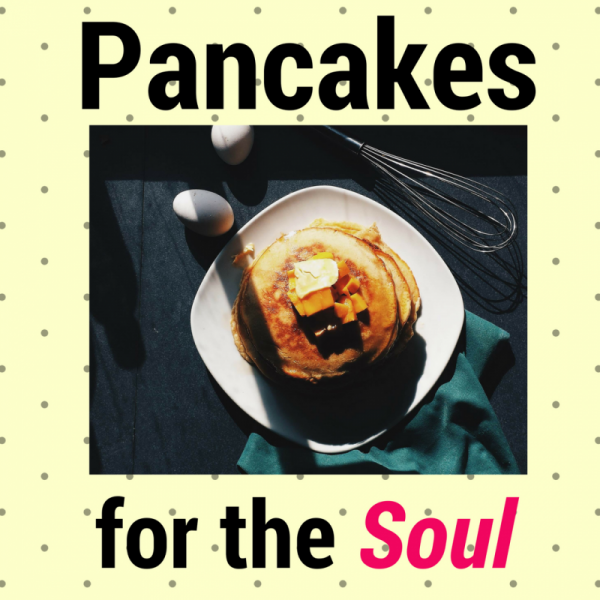In a lot of ways, the work for this project is inspired by, and is meant to build upon, the research and results achieved by The Opportunity Project. As students at Emory University, our immediate interest came at the college level, where we were able to see which schools performed well and which didn’t quite stand up to par. Emory scored well in ____, but beyond that, was relatively mediocre, especially considering the depth of its endowment and the ‘prestige’ many students here like to associate with our school (“did you know Emory ranks number 21 in US News and World Reports rankings?”). So in a lot of ways, the results of The Opportunity Project’s research brings to question many of the standards we hold of our schools and what it is that constitutes a school as good. Should mobility rate, the ability of a school to admit students from the bottom quintile of the household income distribution and move them into the top quintile in the United States, be a major element of the college evaluation process? Are the Ivy League schools, and even schools like Emory, really as good as we claim them to be? Or are we simply evaluating them on certain qualities that allows them to stay within America’s upper echelon of perceived quality? The Opportunity Project left us with these questions, and we wanted answers.
Immediately, one can see that the schools performing best in the mobility rate column (meaning they achieved the highest percentages) are not schools that anyone would have been able to guess, or even ones that the majority of people would know, for that matter. In terms of tier, 10 of the top 20 are selective public.
]]>
Continue reading "Technology Literacy Narrative: The Present"
]]>In this, the next installment of my Technology Literacy Narrative, I dive in right where my past left off. As I became more acquainted with computers, a transition occurred as I started to explore my own interests and to complete required tasks for school. This narrative was a bit more challenging, since in a lot of ways the ‘present’ really refers to a much larger time period than just this very moment. Trying to tie in my past and my present made me look for connections between prior experiences and the way in which I perceive and take advantage of the technological resources available to me now. Full disclosure, that isn’t the easiest path to retrace. From Microsoft Office to black holes, this diverse installment looks into the reasoning behind my behavior and skill set as a participant in today’s technological universe.
]]>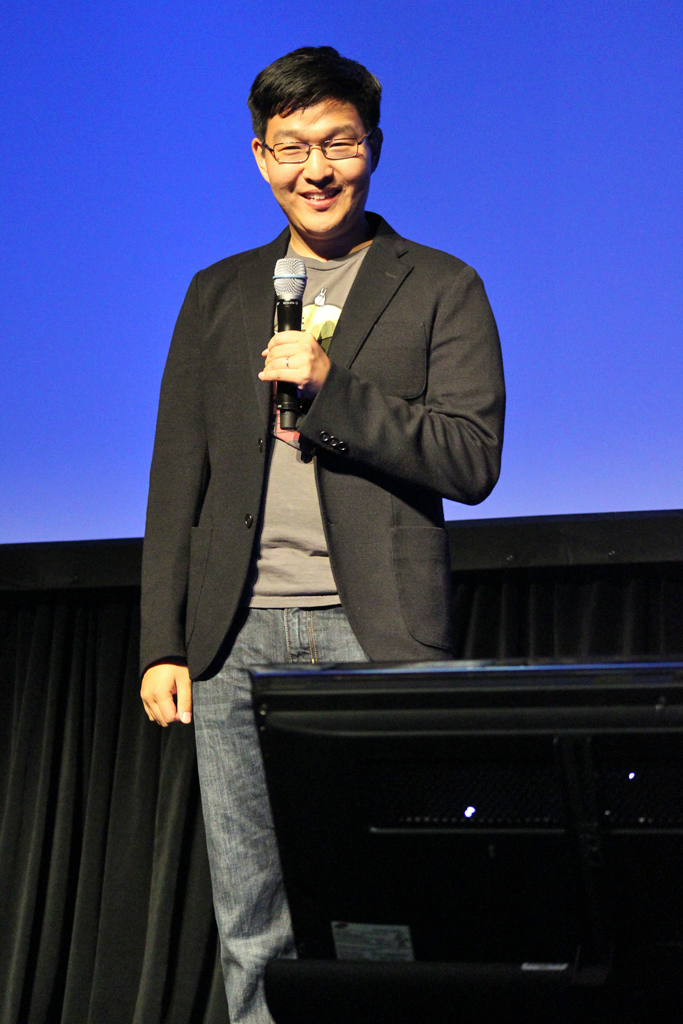
Turns out, Every Frame a Painting is a film analysis video blog series. Beginning on YouTube, Tony Zhou narrates while the screen shows the different elements and strategies that filmmakers implement to make their movies ‘good.’ I remember first watching a video about Nicolas Winding Refn’s Drive, mostly because it was a movie I was familiar with. From there I watched a couple more and began to feel a bit more comfortable with his content
This being the second time around, I had a better idea of what this process would entail. Daniel and I had a bit less preparation than Shemi and I did for my first episode, but we were ready to go once we started recording. In a lot of ways, I think we may have had a better balance, because this time around we had less content and we were more direct in terms of our topics of conversation and what exactly we wanted to say. With Pancakes for the Soul, we probably had a bit too much content we wanted to cover and subsequently paid the price when we had to go back and edit our audio down to the 15-minute limit. Fortunately, Daniel took the lead on editing and all that jazz, so most of my work was in preparation for and execution of our recording, and he took care of the rest.
This lack of extensive preparation also gave us a better opportunity to talk about our ideas as they popped into our heads, rather than trying to recall old epiphanies and repeat them. I think this helped with our flow in the recording and kept our conversation fresh.
Given how little knowledge of the subject I had to begin, I really learned quite a bit. The way in which Tony Zhou has upped his production quality and taken his vlog in such a specific direction mirrors a lot of what television shows try to do, and made me realize just how much an individual with a vision can accomplish if they can find an online following. Tony Zhou is on to something, and I am curious to see how television will respond as the following (and skill level) of various youtuber’s continues to grow. Check out Daniel and I’s discussion here, in what is yet another exciting installment of The Web We Weave.
]]>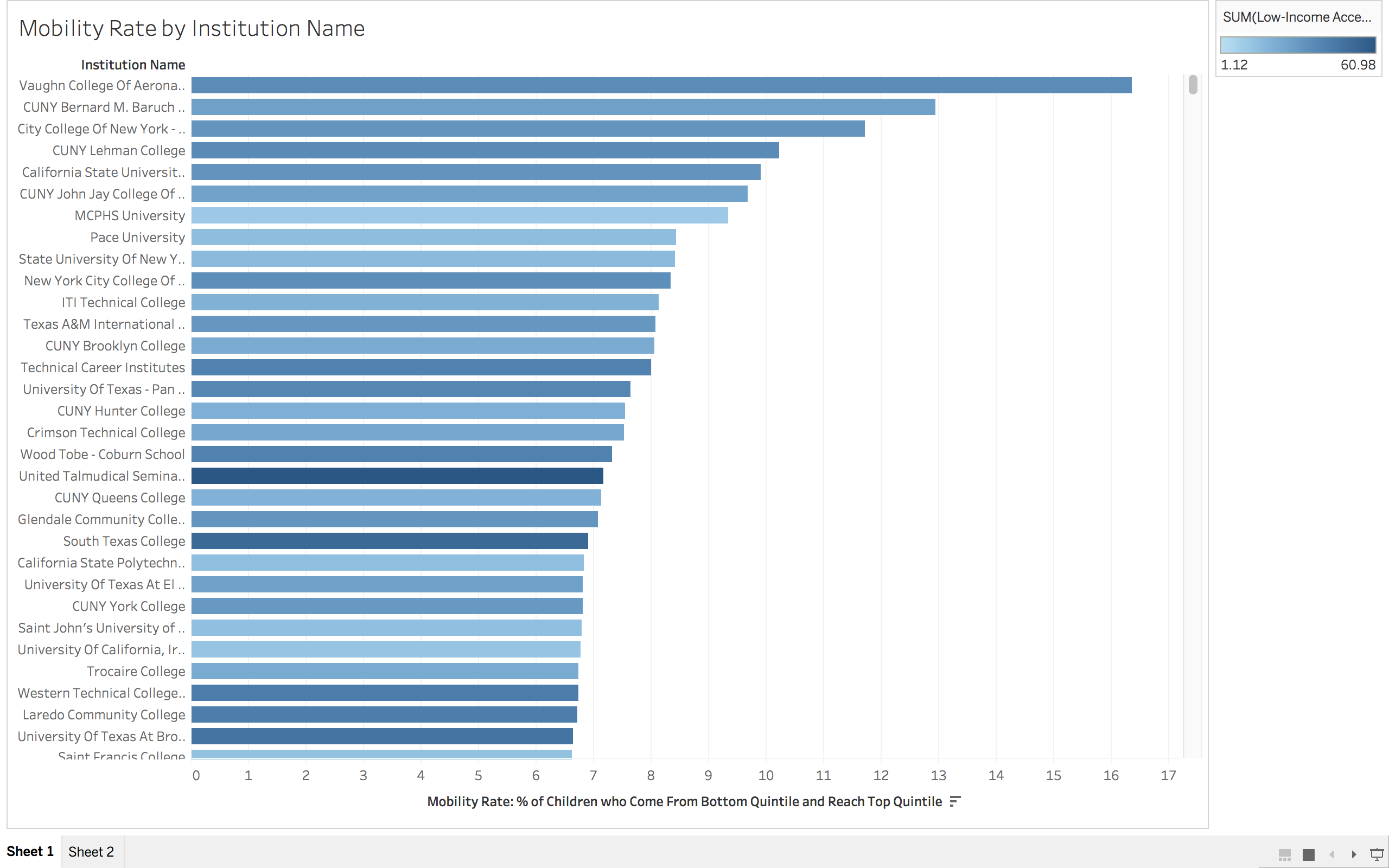
So, maybe I cheated on this one. I’ll let you decide. Above is my sketch of what I envision our data visualization to look like. This is a rough visualization of even that, so maybe that is why I don’t feel so bad about this. I honestly am not sure what else it would look like, but maybe that speaks to my lack of imagination. We currently have a strong understanding of which schools are doing a really good job of helping students move up the income ladder. What we don’t know is why some schools do so well or what the key elements are that enable schools to improve in terms of their mobility statistics. Hopefully we will be able to use the data (and some cool tools) to see what those elements are.
]]>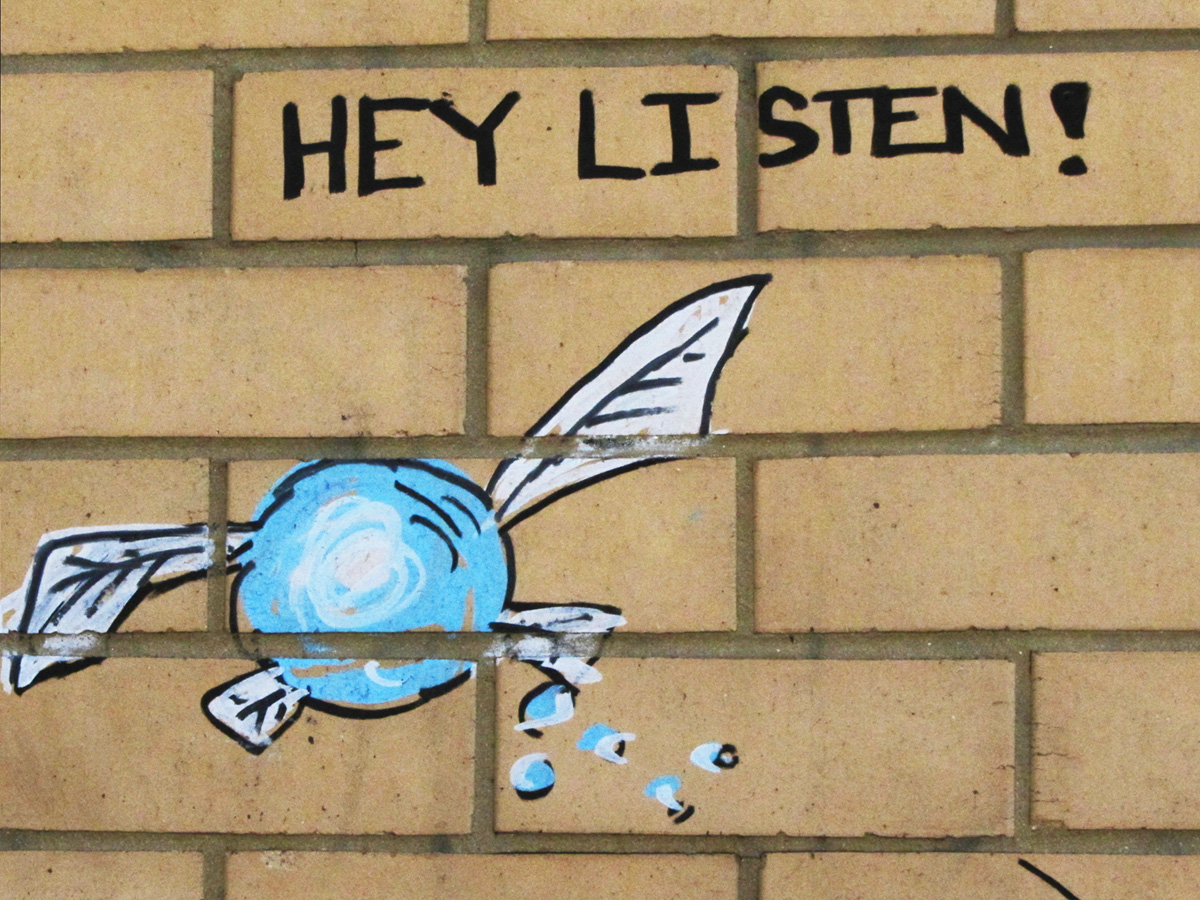
For an assignment coined The Listening Project, our New Media Writing class at Emory University was paired with a class at SUNY College of Environmental Science and Forestry. Each of us was assigned a partner from the opposite school, tasked with communicating with them and sharing a bit about ourselves. Beyond that, we were pretty well left alone to decide what to make of the assignment. I knew we needed to write something about our partner, and that the class perspectives could factor in to our discussions. With our class studying New Media practices and theirs focusing more on environmental and sustainability issues, we had the opportunity to share a bit of what we have learned and get an outside perspective on the topics we had been discussing in the semester thus far.
I soon found out that I was partners with Trevor Cornish, an Environmental Resources Engineering major from Buffalo, New York. As an English and Marketing double major from Wichita, Kansas, I knew we must have a lot in common. But jokes aside, I was excited to speak with Trevor. I had no idea where to go with the project or what I would ultimately write about, but it seemed like it could be a great break from business school group projects.
We first communicated through email and eventually talked over Skype, simply sharing about what we care about and giving each other a bit of a background into our lives, upbringings, and goals. From a New Media perspective, it was interesting to experience how much you could learn about another person simply over email. Much like a pen pal, Trevor was someone I had never met, but a person whom I slowly understood more and more. Online communication offers immense opportunities to communicate with complete strangers, and unlike a pen pal, Trevor and I could exchange thought much more quickly and even speak face to face as we did over Skype. I wrote a bit about what I learned from Trevor and tried to frame it in terms of his own class’ discussions. Check it out here to get a better idea of what I learned from Trevor.
]]>With the task of creating our podcast episode, Pancakes for the Soul, I began just as most inexperienced people do when undertaking a new job: uncertainly. I had picked SoulPancake because I liked its mission and content, but I really had no idea what to say besides my own opinions. My partner, Shemi, was not familiar with the site or any of its content, so we had a bit of a learning curve to tackle. I wasn’t even sure whether or not SoulPancake was new media, but I soon realized that my lack of knowledge might not be such a bad starting place.
We did not have the luxury of framing our podcast after previous episodes since this was the first week of the podcast, but we at least had some familiarity with podcasting and had a vague understanding of what our end product might look (sound?) like.
I began by exploring the home site and gradually built an understanding of the scope of the content and substance of SoulPancake’s goals. Questions began to develop: What is the purpose of their home site, soulpancake.com? What was Rainn Wilson (the head honcho at SoulPancake) trying to accomplish? Why was SoulPancake a distributor of online content, and what advantages did they hold as such? We watched numerous interviews of Rainn Wilson and began to see his vision for a ‘social networking’ site that supported a ‘community’ of people sharing ideas.
The more we looked, the more we began to see the concepts of participatory media intertwined within the structure of SoulPancake. We tried to take as many concepts from class and address them within the confines of SoulPancake’s content and strategy, hoping to create an outline that might structure our podcast in a manner that was conversational yet concise. We wanted to create something that was engaging while also hitting a set number of informational points, a task easier said than done.
This project, maybe more than anything, challenged me to reconsider my digital citizenship. I would not have thought much about which sort of music we could use if not for Professor David’s guidance, nor been as conscious about citing sources and carefully using sound clips. I tried reaching out to SoulPancake (unsuccessfully) to learn more about the inner workings of the organization, a process which further reminded me of the opportunities and limitations of online communication.
I would be remiss if I did not mention the need for collaboration through this project as well. Shemi and I had to communicate and make many, many decisions regarding what we would talk about and what we would include in the final cut. The collaboration aspect also helped make the task far more enjoyable.
With our first podcast completed, I feel good about the work we created. From the brainstorming, the editing in garageband to the creation of the episode’s cover image, this project challenged me in a lot of different ways. I was a little overwhelmed by the length of the editing process, so I hope that I can learn to be more efficient in future projects. All things considered: I’d do it again.
]]>With the task of creating our podcast episode, Pancakes for the Soul, I began just as most inexperienced people do when undertaking a new job: uncertainly. I had picked SoulPancake because I liked its mission and content, but I really had no idea what to say besides my own opinions. My partner, Shemi, was not familiar with the site or any of its content, so we had a bit of a learning curve to tackle. I wasn’t even sure whether or not SoulPancake was new media, but I soon realized that my lack of knowledge might not be such a bad starting place.
We did not have the luxury of framing our podcast after previous episodes since this was the first week of the podcast, but we at least had some familiarity with podcasting and had a vague understanding of what our end product might look (sound?) like.
I began by exploring the home site and gradually built an understanding of the scope of the content and substance of SoulPancake’s goals. Questions began to develop: What is the purpose of their home site, soulpancake.com? What was Rainn Wilson (the head honcho at SoulPancake) trying to accomplish? Why was SoulPancake a distributor of online content, and what advantages did they hold as such? We watched numerous interviews of Rainn Wilson and began to see his vision for a ‘social networking’ site that supported a ‘community’ of people sharing ideas.
The more we looked, the more we began to see the concepts of participatory media intertwined within the structure of SoulPancake. We tried to take as many concepts from class and address them within the confines of SoulPancake’s content and strategy, hoping to create an outline that might structure our podcast in a manner that was conversational yet concise. We wanted to create something that was engaging while also hitting a set number of informational points, a task easier said than done.
This project, maybe more than anything, challenged me to reconsider my digital citizenship. I would not have thought much about which sort of music we could use if not for Professor David’s guidance, nor been as conscious about citing sources and carefully using sound clips. I tried reaching out to SoulPancake (unsuccessfully) to learn more about the inner workings of the organization, a process which further reminded me of the opportunities and limitations of online communication.
I would be remiss if I did not mention the need for collaboration through this project as well. Shemi and I had to communicate and make many, many decisions regarding what we would talk about and what we would include in the final cut. The collaboration aspect also helped make the task far more enjoyable.
With our first podcast completed, I feel good about the work we created. From the brainstorming, the editing in garageband to the creation of the episode’s cover image, this project challenged me in a lot of different ways. I was a little overwhelmed by the length of the editing process, so I hope that I can learn to be more efficient in future projects. All things considered: I’d do it again.
]]>mp3:
In this episode, Kevin Kilgour and Shemlah Naphish analyze the new media elements of Rainn Wilson’s brain child, soulpancake.com. Built on the foundations of social networking, what effect does SoulPancake’s widespread social media presence have on its accessibility? As a ‘positivity outlet’, how does SoulPancake encroach upon political subjects while avoiding the stigma of partisan argument? This episode hopes to answer these questions and more as we take a closer look into the world of SoulPancake.
Sources:
- Inside Quest. “Rainn Wilson on SoulPancake and Making Stuff That Matters.”
- Kid President Clip
- Kid President on Facebook
- Talks at Google. Rainn Wilson: “Soul Pancake”
- Winfrey, Oprah. “How Rainn Wilson Co-Created Soul Pancake“
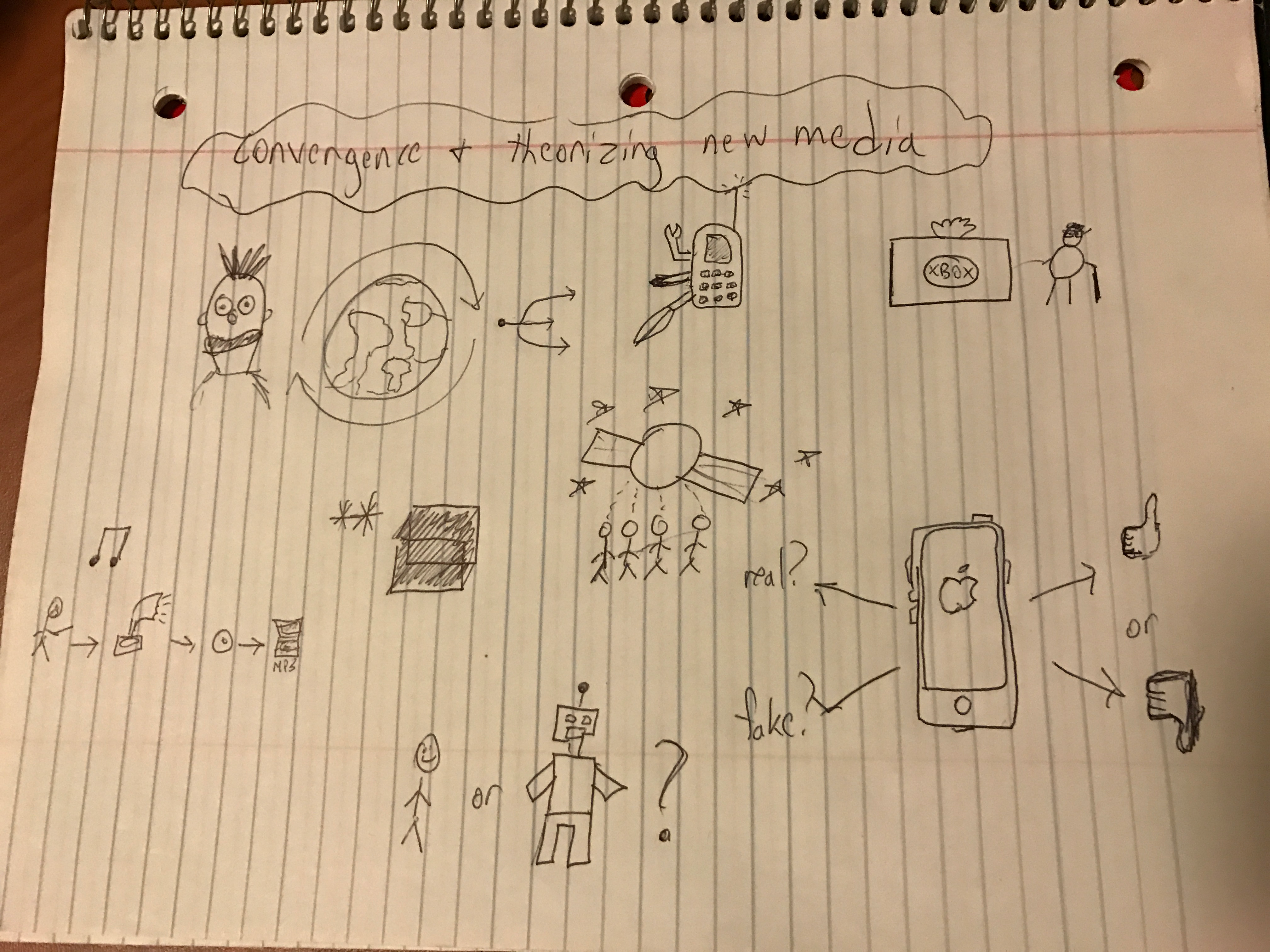 ]]>
]]>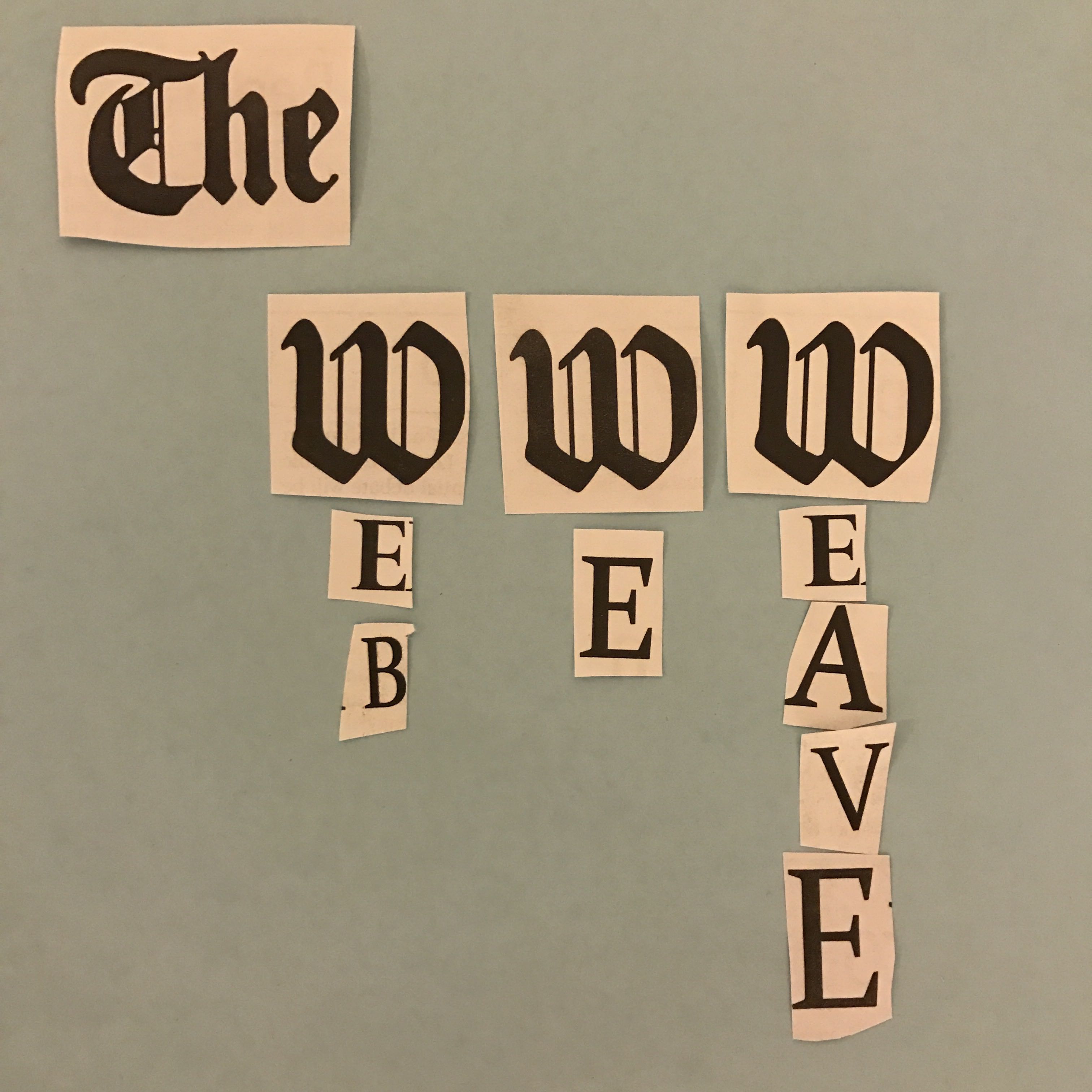
For our podcast image, I didn’t realize I was supposed to post it on our pages as a post so I put it in the class ublend first like a total noob. Oh well. I went in on the [www] look and shot for a sort of retro design with the newspaper cutouts and traditional font of the W’s. I tried at least, and I’ve heard people say that that’s what counts.
]]>